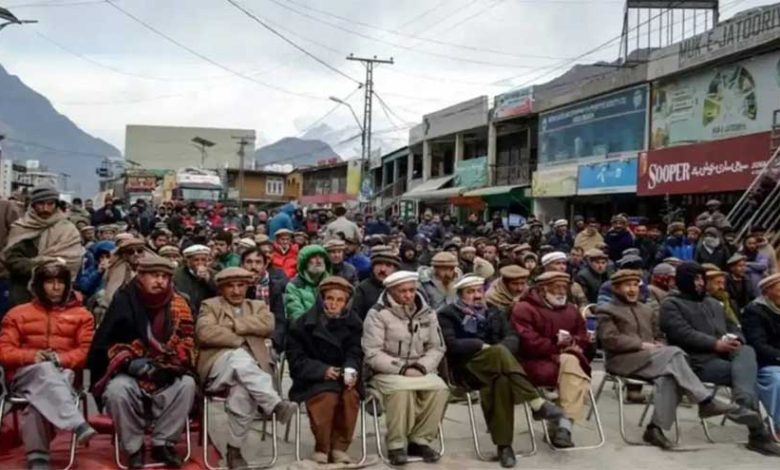Following tax relief, Gilgit-Baltistan traders cease their protest.

After the federal government agreed to their requests and offered considerable tax breaks for the region’s population, traders in Gilgit-Baltistan (GB) declared Wednesday that a two-month-long demonstration along the country’s border with China would come to an end.
In late July, GB’s importers, exporters, small businesses, customs clearing agents, and local chamber of commerce members staged a sit-in protest at the Sost dry port. Because the semi-autonomous region was a “non-tariff” area, protesters asked that the government exempt traders from income and sales taxes.
Trade between China and Pakistan through the northern Khunjerab Pass had been halted due to the protest, and human mobility had also been negatively impacted. To address the problem, Prime Minister Shehbaz Sharif established a committee on August 17 under the leadership of Energy Minister Sardar Awais Leghari.
At a press conference, Rashid Mahmood Langrial, the chairman of the Federal Bureau of Revenue (FBR), clarified that in the past, GB traders were subject to consumption taxes and tariffs at the Sost port, which is close to the Chinese border.
At the press conference, Langrial said reporters, “We did not have a mechanism to ensure that the exemption is offered only to the local population, even though there is no consumption tax for GB.” Leghari, GB Chief Minister Hajji Gulbar Khan, and Senator Saleem Mandviwalla were by his sides.
“Under the new mechanism, custom duty and regulatory duty will still be collected at the border, but sales tax, income tax, and federal excise duty will no longer be collected,” he continued.
The GB chief minister’s spokeswoman, Faizullah Faraq, informed the media that the deal will affect trade between China and Pakistan through the Sost dry port valued at over Rs100 billion [$358.42 million].
During the press conference, Mandviwalla stated that China and Pakistan were concerned about the protracted protest.